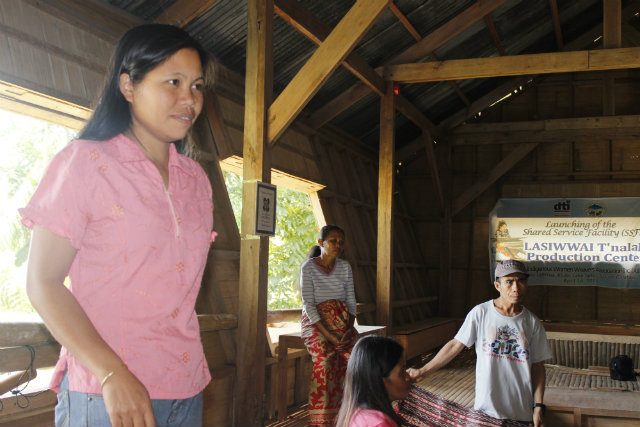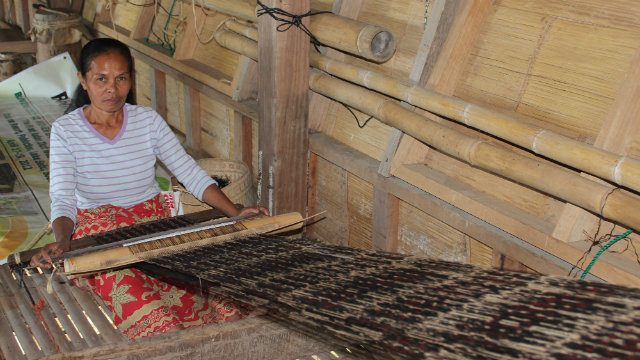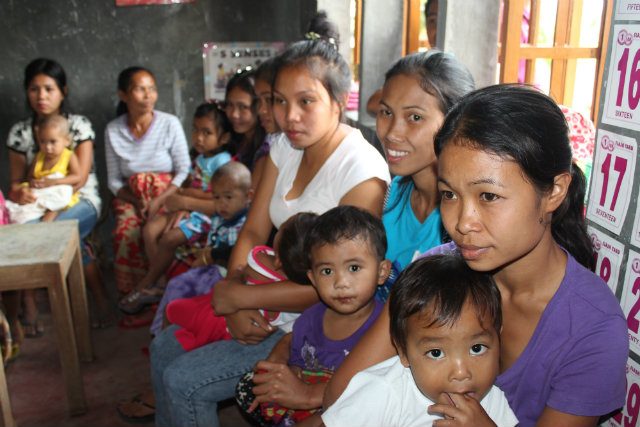SUMMARY
This is AI generated summarization, which may have errors. For context, always refer to the full article.

Do you know someone who devotes herself to women empowerment and culture promotion to shape her tribe’s future?
Let me walk you through the simple yet very meaningful life of Jenita Eko, a Tboli woman of Sitio Lamkua, Barangay Klubi in Lake Sebu, South Cotabato.
Jen, as she is fondly called by her fellow tribesmen, is the president of the Lake Sebu Indigenous Women Weavers Association, Incorporated. (LASIWWAI). She formed the group alongside other Tboli women to bolster women empowerment through the promotion of Tboli arts and crafts.
I see Jen as a quiet and shy person, but when you start talking to her, you will be amazed by her brilliant ideas. According to her, whatever she is today is because of her past experiences.
Deep in love

At an early age, she fell deeply in love with the Tboli culture, seeing how her ancestors weave their dreams into crafts.
The designs of Tnalak cloth are made out of the dreams of the weaver. The artistry and hard work of the Tnalak weavers pushed Jen to help preserve the craft despite many hindrances such as lack of weaving equipment and the unwillingness of some people she approached for support.
What pushed her more to continue the art of Tnalak weaving is the state of women in their tribe. They are considered weak and inferior.
As I was listening to Jen explain her views on gender equality, I could sense her eagerness to stand and to fight for her fellow tribeswomen’s rights. According to her, women have great roles not only in molding families, but also in developing and improving society as a whole.
With this firm belief, the LASIWWAI supports women entrepreneurs who could improve the economic condition of the Tboli tribe and influence decision-making in their areas.
The association runs a social enterprise through Tnalak weaving, giving Tboli women sources of income. A certain percentage of the proceeds is allotted for development projects for the tribe, especially women and children, as they are the most vulnerable sectors.
Women, environment, education

In the past, women were likened to decors confined in houses, but through Jen’s initiative, women in their area are now recognized as potential partners in community development.
Today, LASIWWAI is not only producing world-class Tnalak cloth but also creating a safe haven where men and women are equally empowered. Jen is a living icon of women empowerment and Tboli culture, while also actively advocating for environmental protection and education.
Through the LASIWWAI, tribesmen developed a zero-chemical traditional variety of upland rice. “This is to promote healthy lifestyle as well as to support the organization’s feeding program,” Jen explained.
I was also surprised to learn that using eco-friendly dyes was, according to Jen, among the secrets of making good Tnalak cloth. She was referring to vegetable dyes.
Meanwhile, in terms of education, Jen is very proud that LASIWWAI produced and continues to produce professionals among IP communities. Through partnerships and through the income generated by the LASIWWAI, Tnalak weavers and the qualified children of workers are granted college scholarships.
The scholars are enrolled at the Kindergarten Learning Center, which is run and managed by the LASIWWAI. The facility provides basic education to both kindergarten pupils and their mothers.
The LASIWWAI kindergarten program uses the Department of Education’s curriculum, but also integrates Tboli competencies and perspectives to educate the younger generation about the beauty of their ancestral roots.
Knowing all these, I was so impressed with how a Tboli woman made such tremendous efforts. Jen’s spirit of volunteerism is unwavering. For her, seeing the smiles of her constituents is worth more than a pot of gold. – Rappler.com
Shahana Joy E. Duerme is the information officer of the Philippine Information Agency in Region 12, Koronadal City, South Cotabato.
Add a comment
How does this make you feel?
There are no comments yet. Add your comment to start the conversation.